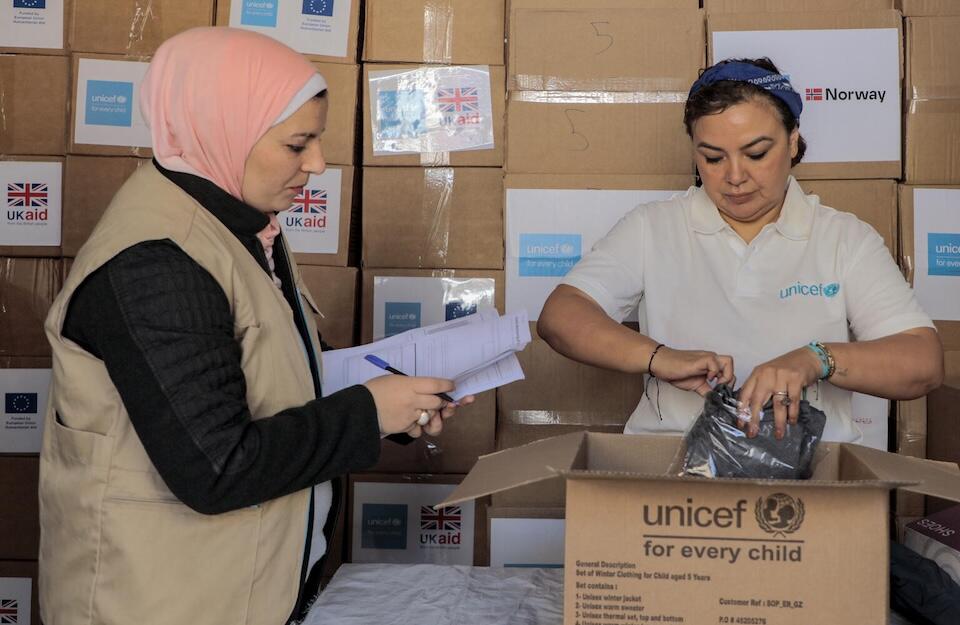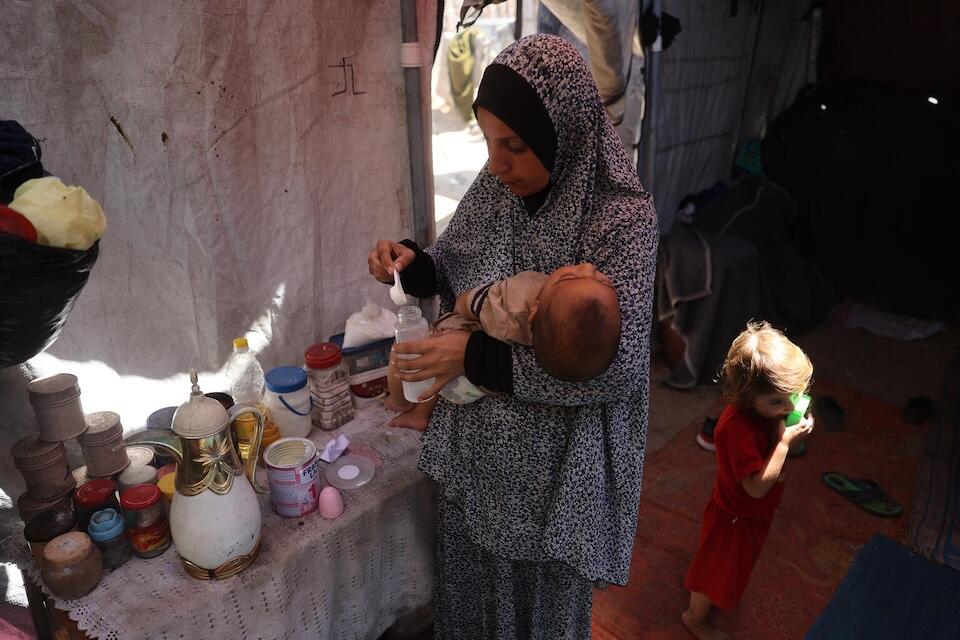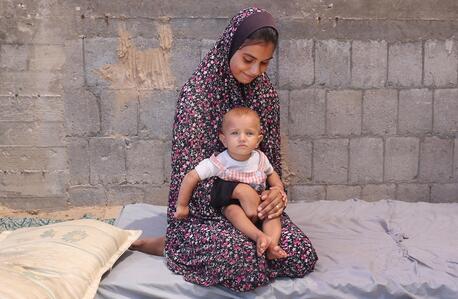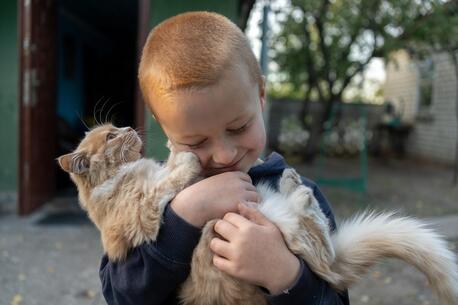
UNICEF Aids Children Facing Bitter Winter in Gaza
UNICEF is working with partners to deliver warm clothing and other urgently needed assistance to children trapped in ongoing conflict in Gaza. Here's how you can help.
Winter is in full swing in the Gaza Strip, and every day is a struggle to survive for children displaced by violence and living in makeshift tents.
Despite logistical and security challenges, UNICEF and partners are distributing warm winter clothes and other essential supplies, along with humanitarian cash transfers to help families in Gaza afford food and other necessities.

Warm clothing can make a world of difference to a displaced child
The needs are immense. "Children are cold, wet and barefoot. Many still wear summer clothes," UNICEF Communication Specialist Rosalia Bollen said at a press briefing at the Palais des Nations in Geneva on Dec. 20. "With cooking gas gone, many are searching through rubble for scraps of plastic to burn."
On a recent visit to Deir Al Balah in central Gaza, Bollen spent time with Saad, 5, who was blinded by a bombing that left him with a head injury and burns. "When I met him this week, he told me, 'My eyes went to heaven before I did,'" Bollen said.
On Dec. 17, during a winter supply distribution for children with disabilities, Saad's family received a box of UNICEF-supported winter clothing. As his older sister unpacked the box, the 5-year-old reached out eagerly to feel the materials of his new quilted jacket, winter hat with a fluffy pompom, warm socks and pair of sturdy shoes.

UNICEF humanitarian cash assistance gives families the power to prioritize their most immediate needs
In addition to the distribution of warm clothes and blankets, UNICEF is also enhancing shelter conditions to protect against cold and flooding, distributing heating equipment, facilitating access to appropriate fuel sources for safe indoor heating and establishing safe spaces for children to learn and play in winterized tents and temporary caravans.
Another key feature of UNICEF's response is humanitarian cash transfers, which allow families in Gaza to buy food, clothing, medicines and other essentials when goods are available in the marketplace.
By the end of November, UNICEF had reached over 1 million individuals (172,000 families, including 588,000 children) with humanitarian cash transfers channeled digitally since October 2023, a critical milestone of UNICEF’s humanitarian cash program, despite unprecedented challenges.
Read UNICEF's latest situation report for more details.

UNICEF screens and treats children for malnutrition, while scaling up health care services
In November, an average of 65 truckloads of assistance entered Gaza, compared to 500 truckloads daily before the war — and when Gaza had internal food production capacity.
"Hunger and malnutrition, and the dire living conditions more broadly, continue to put the lives of children at risk," said Bollen. "Right now, over 96 percent of women and children in Gaza cannot meet their basic nutritional needs. Most are surviving on rationed flour, lentils, pasta and canned food — a diet that slowly compromises their health."
UNICEF distributed more than 312,000 jars of Ready-to-Use Complementary Foods (RUCF) across northern Gaza in November, reaching over 9,000 children ages 6 to 23 months to prevent malnutrition. Very young children are prioritized because they are most vulnerable to nutritional shocks.
UNICEF and partners continue to screen and treat children for malnutrition. Cumulatively, between January 2024 and the end of November, 33,000 children with acute malnutrition have been identified and referred to treatment programs, including 7,000 children with severe acute malnutrition, which can be fatal if left untreated.
UNICEF also continues to scale up its health care services, deploying seven new mobile teams, each made up of 49 frontline health workers. The teams provide primary health care, including immunizations, to 30 shelters and access-restricted communities, serving between 5,000 and 6,000 people each month.
Watch the video:
UNICEF won't stop working to bring relief to Gaza's children
“Children in Gaza are cold, sick and traumatized," said Bollen. "As we approach the end of the year, a time when the world strives to celebrate family, peace and togetherness, in Gaza the reality for over a million children is fear, utter deprivation and unimaginable suffering."
Every child has the right to grow up in a safe and healthy environment. First and foremost, Gaza's children need a permanent ceasefire now.

In conflict zones, children always suffer first and most. Your contribution will help UNICEF reach children caught in emergencies. Please donate today.
HOW TO HELP
There are many ways to make a difference
War, famine, poverty, natural disasters — threats to the world's children keep coming. But UNICEF won't stop working to keep children healthy and safe.
UNICEF works in over 190 countries and territories — more places than any other children's organization. UNICEF has the world's largest humanitarian warehouse and, when disaster strikes, can get supplies almost anywhere within 72 hours. Constantly innovating, always advocating for a better world for children, UNICEF works to ensure that every child can grow up healthy, educated, protected and respected.
Would you like to help give all children the opportunity to reach their full potential? There are many ways to get involved.





